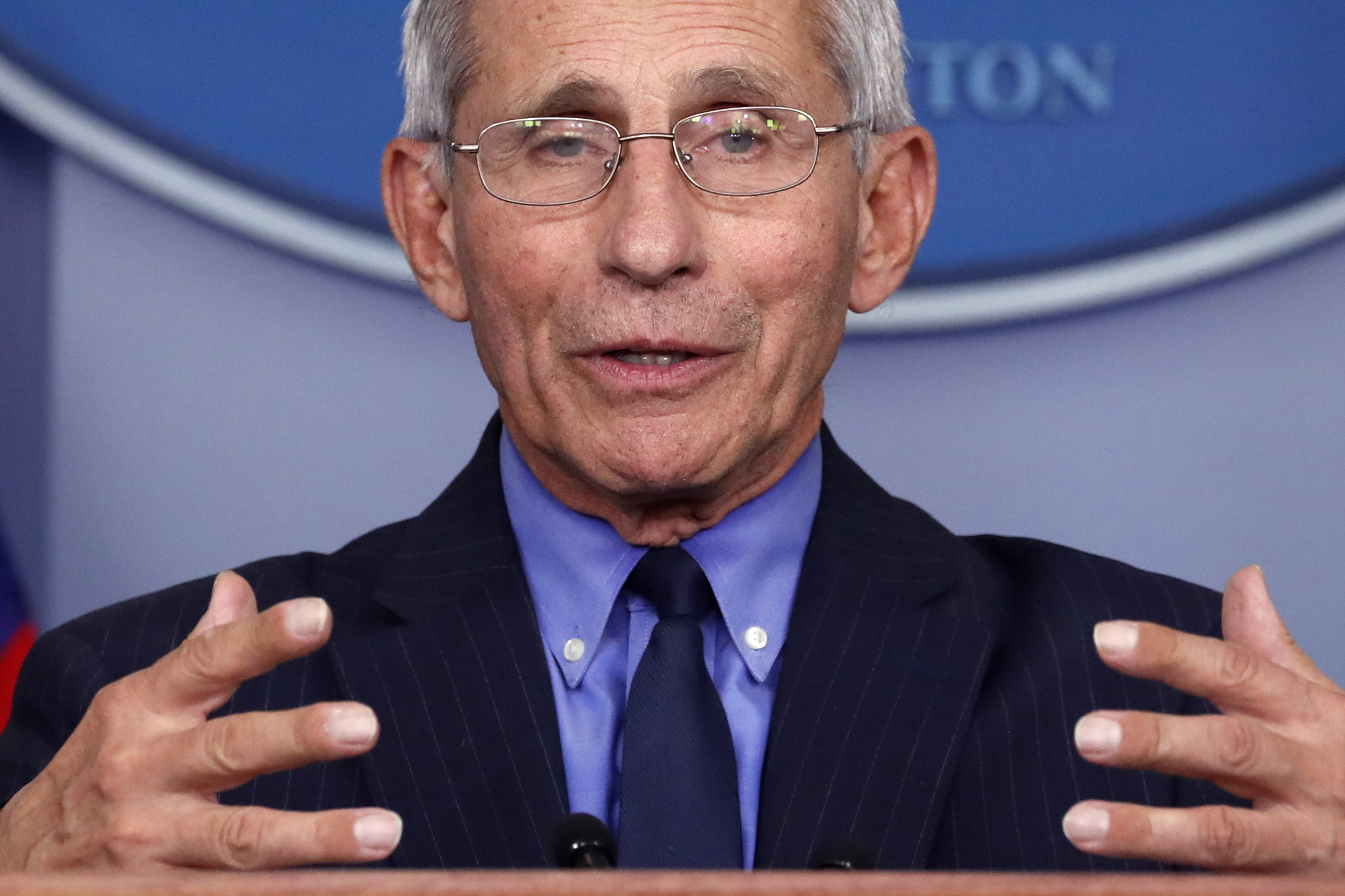YAHOO NEWS. CAITLIN DICKSON
Since the early days of the coronavirus pandemic, Dr. Anthony Fauci, the country’s leading expert on infectious diseases, has established himself as the authoritative public face of the Trump administration’s coronavirus response.
For some, however, he has taken on a different role. In recent weeks, Fauci has emerged as the latest target in the vast web of COVID-19-related conspiracy theories that have been circulating on social media since reports of the coronavirus first began to emerge out of Wuhan, China, in January. Like other coronavirus villains, from the Chinese government to Bill Gates, Fauci has been charged with an array of nefarious activity, all of it implausible and some of it mutually contradictory. According to some theories, for example, he’s both played a role in creating the coronavirus and exaggerated the risks of a “fake” pandemic. According to widely viewed and shared YouTube videos, Facebook posts and memes, Fauci’s alleged motives include ties to “big pharma,” a financial stake in a future coronavirus vaccine and involvement in a “deep state” plot to destroy the economy and influence the presidential election in November.
Experts warn that recent efforts to undermine scientists and public health officials like Fauci have the potential to further compound the dangers of misinformation, which has spread alongside the coronavirus as a dangerous comorbidity to the pandemic itself.
“Trust ... is one of the most important factors to handle such a pandemic,” said Pia Lamberty, a PhD student at Johannes Gutenberg University Mainz, in Germany, who studies the psychology of conspiracy beliefs. “If people do not believe what [the experts] say, they are less likely to follow their recommendations.”

Lamberty said that the proliferation of conspiracy theories around the coronavirus “is not surprising,” as “conspiracy theories arise especially when people feel that they have no control.” Not only that, but Lamberty said that the kinds of narratives that are currently being spread about the coronavirus (that it is man-made, designed to harm certain groups and benefit those in power) are similar to those that arose in response to previous major disease outbreaks, such as Zika, Ebola and AIDS. In fact, it has been true of epidemics going back at least to the Middle Ages.
“Health officials are often a target of conspiracy theories and disinformation,” she added.
While the disinformation campaign that has emerged around the coronavirus includes many classic conspiracy theory tropes, the recent focus on Fauci, as well as other health authorities like the World Health Organization, also seems to reflect a particularly Trumpian phenomenon, in which the president and his allies within the administration are seen by supporters as separate from the rest of the federal government, and any official or institution that contradicts President Trump’s message is viewed as an enemy.
“I think the Trump world is unique in the sense that they are entirely engaged in a narrative battle devoid of fact and reality and nothing else. It’s the only thing they’ve been successful at,” said Danny Rogers, chief technology officer of the Global Disinformation Index, which works to track and disrupt the spread of misinformation online. Rogers, who also teaches a course on disinformation and narrative warfare at the New York University Center for Global Affairs, said that Fauci’s loyalty to science and data is “at odds with loyalty to [the] narrative that the administration and its supporters often want to spin.”

Though Fauci has thus far managed to hold on to his position, his public divergence with Trump on a number of points, including the president’s previous pledge to reopen the economy by Easter and his premature endorsement of hydroxychloroquine as a potential treatment for the coronavirus, has prompted calls from Trump’s supporters to #FireFauci — the hashtag on a Twitter message Trump himself retweeted, while denying any intention of dismissing the scientist, who has been a leader in public health since his much-praised efforts in the early AIDS epidemic.
Conservative media outlets like Fox News and Steve Bannon’s “War Room” podcast have also questioned Fauci’s authority, although with less obviously invented pretexts than a secret investment in a nonexistent vaccine.
Earlier in April, the government was forced to step up security for Fauci amid threats to his personal safety.
Fauci, of course, is far from the only imaginary villain in the fight against what the president likes to call “the invisible enemy,” and the disinformation comes from a wide range of sources, including administration officials, which Rogers said was “one of the biggest challenges” in combating it. Last week, Ken Cuccinelli, the acting deputy secretary of homeland security, retweeted a post that referred to the recommendations of the World Health Organization as “Chinese propaganda,” the theme of much conservative commentary following Trump’s public dispute with the WHO.
“These are supposed to be sources of definitive information at a time when we need definitive information,” Rogers said of officials like Cuccinelli.

No comments:
Post a Comment